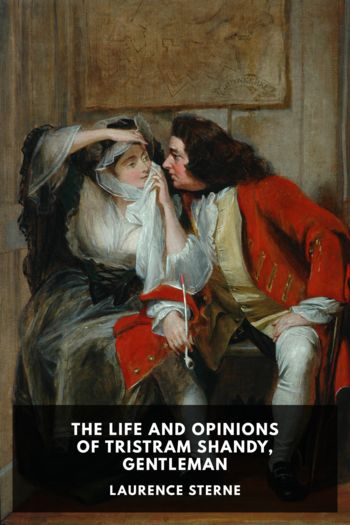EXFIL, Anthony Patton [best non fiction books to read TXT] 📗

- Author: Anthony Patton
Book online «EXFIL, Anthony Patton [best non fiction books to read TXT] 📗». Author Anthony Patton
I was surprised to hear that China would assign someone like Li to D.C.—their top cyber warrior, now in the belly of the beast.
“The Chinese military officer we recruited in Bangkok works for him,” I offered.
He nodded with a skeptical squint. “We’re eager to see if Captain Chen produces solid intelligence. Lord knows we can’t handle any more cyberattacks.”
He paused with a deep breath, then continued, “We generally defer to the man on the ground, but I’m told that you received clear guidance to stand down on Chen.”
“General, when Captain Chen provides us intelligence sufficient to stop the next cyberattack, then all the concerns will end.”
We made tense eye contact until I dropped my gaze as a gesture of respect.
My coercive approach had ruffled some feathers, perhaps a Pyrrhic victory, which meant the best plan was to stay below the radar until Chen’s intelligence reports started rolling in.
He returned to his desk, reached inside a safe, set a laptop computer on his desk, and drummed his fingers on it. “Lieutenant Colonel Li’s unit launched a series of cyberattacks on the Pentagon. Our computer systems—in particular, NIPRNet and SIPRNet—need to be replaced, so our programmers are writing security patches on this laptop to keep the Chinese at bay. We believe Li intends to finish the job.”
The anger boiling my blood was genuine, not histrionics.
“If that son of a bitch is here for a cyberattack, I’m taking the lead.”
He leaned back.
“FBI and CIA claimed primacy on this one. They’re not going to give this to…us,” he said.
I leaned forward. Time to ruffle some feathers. “General, if we want CIA, FBI, or others in the Intelligence Community to take us seriously, we have to insist on running our own operations. Who better than a military officer to pursue Li? I know him, for God’s sake.”
He didn’t disagree with me, and was evidently thinking about ways to keep it civil, but he understood that the FBI or CIA claiming primacy wasn’t always based on what was best for U.S. national security. Agencies didn’t call dibs on potential sources when a better way forward existed. Then again, a general at his level didn’t have time for action officer interagency squabbles.
“I know you’re meeting FBI and CIA later today to discuss the Bangkok operation,” he said pensively. “It will take some convincing on your part, but tell them, in a nice way, that you’re taking the lead.”
I nodded smartly and stood, resisting the urge to smile.
Decisive leadership always made my day.
He rounded the desk and shook my hand. “I hear Beth is doing a great job at West Point. I look forward to attending her book-signing event. Will you be there?”
“Of course,” I said, curious as to why he thought I might not attend.
FIVE
Before meeting with CIA and FBI, I wanted to know who specifically had objected to our coercive pitch proposal and why, as if other countries didn’t do the same thing to us.
One of the secrets of being a successful Intelligence Officer was having a network of colleagues to give you the scoop on what was happening behind the scenes.
In a world of lone wolves, you never knew whom to trust.
The primary job of the Intelligence Officer was recruiting sources and stealing secrets, but half the battle was maneuvering the bureaucracy, both to take primacy on individual leads and to convince everyone that the intelligence was righteous. I can’t tell you how many times would-be sources walked, talked, and quacked like ducks but the bureaucracy refused to call them ducks.
In this case, I was surprised to learn that the man pulling the strings behind the scenes was none other than my CIA brother from another mother, Brett Phelps, which was a strange coincidence.
We had served together in Islamabad ten years before.
There, we had both attempted to cultivate then-Captain Li.
On the surface, Brett and I couldn’t be more different.
I was a Southern gentleman from a military family, with some black sheep who could pass for rednecks—fine people that I wouldn’t invite to cocktail parties but would clench my fists to protect. Our family reunions could turn loud and violent as the beer and bourbon flowed.
We were oddly proud of these quirks.
Before all the media hype, we were proud of southern rock and the Confederate flag. Who didn’t like Dukes of Hazzard? We also believed that traditional gender roles and social propriety still had something to offer a world in search of meaning. We scoffed at secular, urban culture and viewed it as a threat to the Republic. Brett, on the other hand, was a prototypical New England liberal with an Ivy League education, smart as a whip, and regularly drank to excess.
With Brett, you always had the sense that he must have joined the CIA as a fraternity dare and could quit at any time for a plum position within the family business or tap into the family fortune.
I never confirmed his blue-blood pedigree, but it also wouldn’t surprise me if that son of a bitch had grown up blue collar in Detroit. In any case, he wasn’t burdened by a 40-hour workweek ethic; he apparently came and went as he pleased, yet still clocked more hours than most, with a network of contacts and sources at all levels of Pakistani society that left you breathless. Even the ambassador wasn’t on a first-name basis with the power echelon of Pakistani society in Brett’s world.
Despite our obvious differences, we had two things in common: a love of the bottle, and a passion for the fairer sex. Brett could sustain lucid discussions





Comments (0)